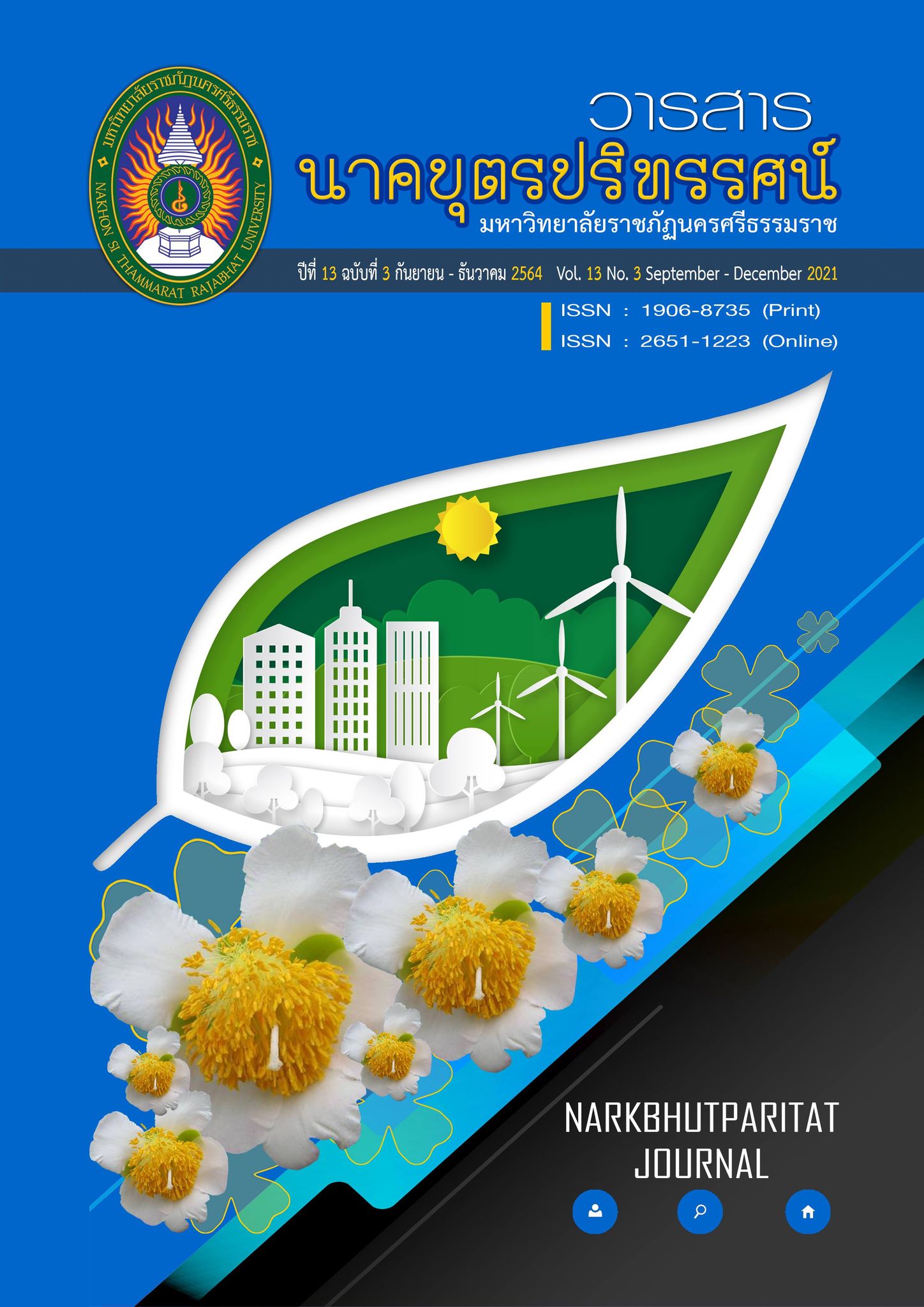Haiku: The Art and Power of Poetry and Learning English
Main Article Content
Abstract
Haiku is a short form of traditional Japanese poetry. Japanese people have written haiku for hundreds of years. Many countries now have composed it for the enjoyment to use languages, announcing their experiences, expression the opinions and emotions through haiku. Haiku poets had better be sharp-witted to choose the best words to compose haiku. This article introduces 1) haiku history 2) haiku writing process 3) Original Haiku writing 4) Imagery in haiku 5) Western haiku writing 6) Thai haiku writing 7) Haiku writing in classroom and Students’ haiku.
Article Details
References
Drury, J. (2006). The poetry dictionary (2nd ed.). Ohio: U.S..
Matuso, B. (2016). The Narrow Road to Oku (2nd ed.). Tokyo: Japan.
Chaisinwattana, Y. (2013). Basic Lietrature (4th ed.). Bangkok: Thammasart University. (in Thai)
George, B. (2007). Empty Garden Tanka. Journal of Simply Haiku, 5(1), 31
Gilbert, R. (2005). Kigo Versus Seasonal Reference in Haiku: Observations, Anecdotes and a Translation. Simply Haiku. 3(3), 1-14.
Gilbert, R. & Yoneoka, J. (2000). From 5-7-5 to 8-8-8: An Investigation of Japanese Haiku Metrics and Implications for English Haiku. Journal of the Foreign Language Education Center, 7, 1-35.
Giroux, J. (1974). The Haiku Form. Tuttle Publishing.
Higginson, W. J. (2003). Guidelines for Writing Haiku in English. New York: McGraw-Hill.
Lee, B. Y. (2011). The Practice of Haiku Writing in Second Language Classrooms. Journal of English Education, (2), 23 - 44.
Lim-apiburn, S. (1998). Haiku: Influence to Potjana Chantarasanti. Journal of Arts, 1(1), 33-37. (in Thai)
Myers, J. (2009). The Haiku as Language game, syllogism and montage. Reflections on English Language Teaching, 8(2), 89-102.
Murayama, C. & Murayama, F. (2019). Retired teachers of Haigh School. Interview, 7 June 2019.
Nitiphak. S. (2015). Attractiveness Japan Poetry to the age of Globalization. Princess of Naradhvas University Journal of Humanities and Social Sciences, 2(1), 75-81. (In Thai)
Okuhara, G., (2019). Professor of Sophia University in Tokyo. Interview, 4 June 2019.
Silpakampises, W. (2525). Introduction to Poetry and Prose. Srinakarinwirote Songkhla University Press. (in Thai)
Tanunard, J. (2015). Haiku for Life: Boarderless poetry Retrieved 2019, August, 23 from https://www.ebook.in.th/39070/. (in Thai)
William, M. (2013). The history of haiku in Japanese tradition. University of Leeds: UK.
Wright, R. (1998). Haiku Poem: Terebess Asia Online. Retrieved 2019, August 23 from https://terebess.hu/english/haiku/wright.html.


